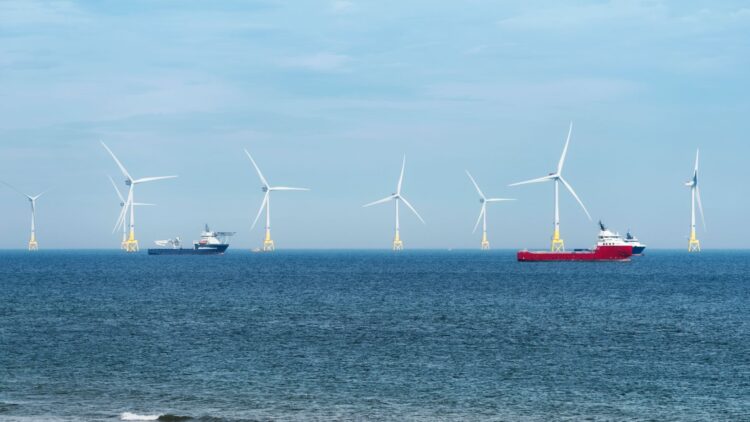The world is undergoing an energy transition, and countries are finding solutions at sea. Norway, renowned for its tradition in the oil and gas sector, has made a major investment in wind to secure its energy future. The country’s Ministry of Energy has just announced that it has received new proposals to develop floating wind energy projects, specifically in the Utsira Nord area. The project is a strategic move to reinforce the country’s commitment to decarbonization, but without sacrificing new energy sources that bring innovation and keep the country competitive in the industry.
Utsira Nord and Equinor and Vårgrønn
The first companies to receive a proposal and join the Utsira Nord consortium were Equinor and Vårgrønn. For those familiar with the sector, these names are not unfamiliar. Equinor is a major energy company in Norway and has sought to diversify its energy mix beyond oil and other fossil fuels. Vårgrønn, meanwhile, emerges as a strategic partner for this agreement, focusing on renewable energy.
Norway’s local engineering is one of the consortium’s strengths and major investments, in addition to a network of suppliers with a track record in the offshore sector. The expertise of both companies, especially in oil platforms, is envisioned as a differentiator for the floating turbines, which will be capable of operating even in deep waters.
Beyond technology, this new project stands out for its potential positive economic impact. The project is expected to generate jobs and foster production chains, and Equinor and Vårgrønn’s proposal seeks to convince the government that the investment goes beyond energy: it is a project focused on sustainable development for the entire region.
Harald Hårfagre, Deep Wind, and EDF: The strength of companies on an international stage
The second proposal for this new Utsira Nord project for the Harald Hårfagre consortium is made up of Deep Wind Offshore, from Norway, and EDF Renouvelables International, from France. This second combination of companies brings an international dimension to the consortium, reinforcing global interest in the potential offered by Norwegian offshore wind energy.
Deep Wind is more active in offshore and renewable solutions, while EDF is a global leader in clean energy. These two companies promise to bring new ideas and their diverse market experiences to this project, something that could significantly enrich the development process at Utsira Nord. The presence of another European company lends significant weight to the project, demonstrating that Norway is not only looking internally but also seeking to attract partners who bring technological diversity.
What’s at stake for Norway?
The project’s main objective is to consolidate Norway as a leader in renewable energy by 2040, and the government has a target of 30 GW of offshore capacity by then. Utsira Nord is a key player in this process. The consortium’s strategy is to divide the process into two phases, including a development period before the final selection of companies. One of the most important criteria for selecting companies is the level of government support required, which has already been capped at US$3.5 billion.
What can we expect from the future of this project?
The Utsira Nord auction is not just a technical event, but a milestone in the global energy transition. It demonstrates how traditional fossil fuel countries are reinventing themselves to meet the climate challenges of the 21st century. The entry of two strong consortia, one national and one international, reinforces the project’s strategic relevance.
More than just a business dispute, it is a clear sign that clean energy is here to stay. Norway, with its maritime tradition and forward-looking vision, is positioning itself to be a global leader in offshore wind power. And for the world, this means not only new megawatts of energy, but also hope for a more sustainable and innovative path.


